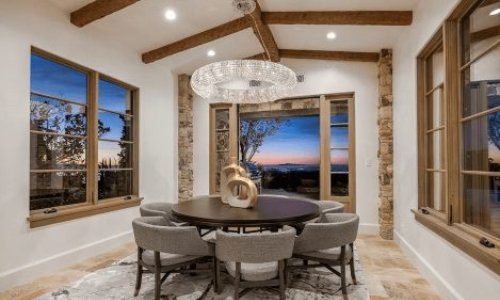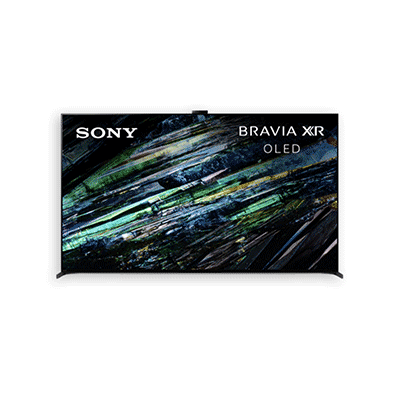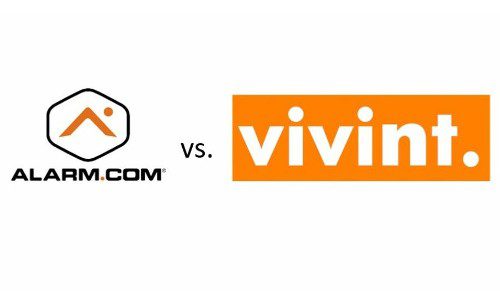Now in its 11th year, the 2024 CE Pro Masters recognition is a prestigious nod to industry “lifers” who have made a profound impact while not necessarily being in the limelight. But its precisely these types of worthy recipients that keep the custom integration industry innovating, evolving, and customer satisfying.
The 2024 CE Pro Masters class largely represents various segments of the audio industry in particular, which is a category emphasized in the early years of the program and due to its rich history naturally creates a disproportionate number of nominees who have spent their careers selling, developing, and engineering loudspeakers and components. They are joined by other highly influential pros who have elevated different areas of the custom industry.
Overall, this year’s honorees include people from many sides of the channel — integrator, manufacturer, retailer, distributor, manufacturer’s rep, and PR. As always, CE Pro is grateful to those who submitted nominees, and editors Arlen Schweiger and Robert Archer assisted with the selections. Read on to learn more about the 2024 CE Pro Masters and join in wishing everyone here a fond congratulations to all!

Ken Forsythe, AudioQuest
Some people boast about being lifelong audiophiles; someone who can legitimately make that claim is Ken Forsythe, director of high-end audio, AudioQuest.
Growing up in the Bahamas, Forsythe’s family owned a Hi-Fi shop, which exposed him to a wide variety of music. After moving to Atlanta, he joined HiFi Buys and later the revered high-performance audio brand Meridian. Spending more than 20 years at the famous British AV equipment manufacturer, Forsythe was involved in Meridian’s efforts to expand its product line into the video and custom installation markets.

The Future of Digital Lighting & Control
As a custom integrator, lighting is in demand. Effective communication, education and showcasing the value proposition of LED light fixtures in conjunction with integrative control systems are the keys to overcoming challenges and closing sales in this specialized market. Join us as we discuss the future of digital lighting and control with David Warfel from Light Can Help You and Patrick Laidlaw and Mark Moody from AiSPIRE. Register Now!More recently Forsythe worked at MQA before joining the AudioQuest team to help the popular cabling, headphone, DAC, and power manufacturer bring more focus to its products, as well as its partners and market emphasis.
Throughout his time as an enthusiast and market professional, Forsythe says there have been several people that have had a profound impact. “I would have to start with my first ‘boss’ — my father — who instilled in me a strong work ethic,” he states.
“Others of huge influence include my dear friends Bob Stuart, Colin Aldridge, and Allen Boothroyd of Meridian Audio. All of these people helped me to mature my skills in product and brand management. Norm Steinke, also a Meridian alum, was also instrumental in honing my skills in account management, training, and demonstrations.”
When Forsythe was Meridian’s director of product management, the company introduced several category-defining products, and he also co-wrote and implemented a Meridian training program that is still appreciated by many to this day that will walk up to him and recall those training sessions.
He adds that during his time with Meridian the company was at the forefront of the video category, including DVD players, projection displays, and video processing. Meridian’s achievements on the audio side during his tenure were just as impressive with introductions including DSP active loudspeakers, digital surround sound controllers, Sooloos Media Servers, which are now Roon, and on the content side Meridian introduced a lossless compression scheme called Meridian Lossless Packing (MLP) that would eventually become MQA.
“As this industry continues to evolve, I look forward to it getting back to focusing on performance and not lower pricing,” he adds. “No matter what new products or categories come along, even in the mass market, there will always be higher performance options that simply look, sound better, and are easier and more reliable to integrate. This is where I have always focused my efforts.”

Jim Garrett, Harman Luxury Audio
With a career that spans more than three decades, Jim Garrett, senior director product strategy and planning for Harman Luxury Audio, is considered by many the face of Harman’s high-performance home audio brands.
Like many, Garrett’s electronics career started in retail, including the early days of custom installation. After working several years for Best Buy, Garrett made the transition into the manufacturing side with a brief tenue at Velodyne and a much longer career stop at Klipsch. Staying in the Indianapolis area, Garrett’s diverse career also includes a year working for CEDIA as its director of technical training before moving onto Harman.
“I’ve been a drummer since the age of five and I became a singer not long after, so music is in my blood. I was in a band by the age of 10 and by high school was totally into recording, home audio gear, and of course car audio. I would spend a lot of time hanging out in retail Hi-Fi shops listening to as many audio products as possible and learning as much as I could from the salespeople and the stacks of magazines I read religiously,” he remembers.
“I went off to college and received a degree in telecommunications with a focus on audio, video, and film production as I thought a career in film and television would suit me. I pivoted to the audio industry when Best Buy came to my hometown and I took a position as a supervisor in the audio department, quickly becoming an assistant store manager and district trainer for audio products and competitive intelligence. I’m still in a band and have played almost 50 shows just this year, including the One City Tour with the CE Pro All-Star Band at CEDIA Expo.”
A who’s who of the home audio market has influenced Garrett, including Dr. Floyd Toole, Dr. Sean Olive, and Paul Klipsch. Another person he says aided his career development was Dave Rogers, president of Harman’s lifestyle division. Garrett notes that prior to their roles at Harman, they worked together at Klipsch.
“I am one of the lucky few who turned their hobby into their career. I love going to work every day where I am surrounded by smart people who share my passion for music and creating the best audio products possible,” he admits. “As a creative person and a constant learner, product development ticks all the boxes for me. It’s both left brain and right brain at the same time. And as a musician working for one of the largest audio companies in the world, I have been able to accomplish things I could never have dreamed possible. It is tremendously humbling and satisfying to know that I have shared the universal language of music with people all over the world who have perhaps enjoyed a product that I helped to create.”

Rick Goren; Technology Interiors, Speaker Snap
When one door closes, another one opens and Rick Goren’s custom industry path has embodied this to where he considers “All doors open on small hinges” his mantra. That path led Goren to forming an integration company and, more recently, launching Speaker Snap, which has earned rave reviews from CEDIA Expo attendees the past two years.
As he vividly recalls, in 1998, while working for a very large integrator called Simplex, he was ready to go out on his own. As serendipity would have it, on Thanksgiving Wednesday 1998, Tyco (whose president, Dennis Kozlowski later went to jail for embezzling millions from the company), purchased Simplex for a huge sum and terminated all of the top security communication design experts. “We were the top guns of intellectual asset and hostage protection for the U.S. market,” Goren says.
“The ironic part of this story is that I had gone to downtown Indianapolis to get my retail tax ID and merchant certificate to start my own company … when the 911 page alerted me at 4 o’clock on that Thanksgiving Wednesday for me to return to the office to turn in my company car, clean off my desk and get my last paycheck. I was so excited to receive enough severance to start my new journey and build my own brand. From that point on I never looked back in the rearview mirror.”
Since Goren established it 25 years ago, Technology Interiors has become one of the leading home theater experts and integrators in Central Indiana with over 10,000 clients, a beautiful showroom and 12 employees. The company manages to install, pre-wire and program at least 4-6 clients a day, every day of the week, he states.
“When I started the company, I created my niche by doing my own TV commercials. I realized that there were no other audio video companies doing guerilla marketing,” Goren comments. “My mentors were the greatest motivational speakers in the world! I had picked up all these traits from my earlier career days as a Radionics regional sales manager.”
Among other reasons for Technology Interiors’ success, Goren points a talented team of technicians and staff, “especially my two sons Isaac and Gabriel, and Josh Hill and Ben Pettingill who have been by my side for almost 20 years.”
When it comes to Speaker Snap, Goren says the idea came to him while he was staring at a bicycle seat of all things, “which sounds obscure to people who are not inventors.” No matter how its vision was conceived, Speaker Snap has quickly made a name for itself and is now available from major distributors worldwide, he notes.
The brand comprises banana plugs, keystone inserts, phoenix connectors, barrel connectors, structured wire interfaces, and outdoor audio interfaces — all using patented levers and clamping mechanisms instead of screws. “And many other new products to come, all of them are tool-less,” he adds.
Goren says his proudest moments come when a client gives him a high-five and says how much they love their home theater. When he and wife Claire are not involved in daily business activities, they like to rock out at their home with Rick on guitar and Claire playing piano. “We both really love music, live concerts, going on cruises, driving fun cars and living this most amazing life with gratitude,” he says. “We feel very blessed to have accomplished all of our success!”

Ken Hecht, MSE Audio
A second-generation audio designer, Ken Hecht has been a fixture at MSE Audio brands for an incredible 40 years. He currently serves as vice president of SoundTube, PhaseTech, and Rockustics for the company, and has been an audio enthusiast for most of his life.
Hecht says he was always interested in audio electronics, building speakers, amplifiers, tuners, and preamps as a teenager. He graduated from the University of Hartford with a B.S. in Mechanical Engineering and an MBA. Early in his career he worked in business planning for Hamilton Standard, a Fortune 500 company specializing in alternate energy sources.
The audio bug was inherited and fostered by his father, William (Bill) Hecht, who developed patented technologies and started United Speaker System, a major OEM manufacturer of speakers. The elder Hecht got Ken interested at a young age and set the course for his journey in the industry, he notes.
In 1983, the younger Hecht joined United Speaker Systems and in 1990 became its president. After the company’s sale to MSE Audio in 2006, Hecht continued as the president of USS, in addition to being VP of R&D for all MSE companies.
Hecht has designed hundreds of products in the consumer, automotive, commercial, and professional sound markets. He has developed audio electronics and speakers, networked audio, wireless transmission of sound and theater AV, not only for MSE but other major brands.
“My first love is product design,” Hecht states. “My favorite projects involve purpose-built systems which have dedicated digital processing, crossovers, amplification, and speakers.”
Considering his long industry tenure, Hecht has been a part of its shift from the old retail-centric approach where consumers experienced firsthand product demos, to an installer-based market. In the commercial domain, where MSE Audio also serves in a significant way, he says the biggest change is a move to digital from analog systems.
“As an engineer, I look forward to the continued advancement of sound reproduction and the application of digital electronics in the creation of sound. We’re seeing this now and it will continue to evolve,” Hecht says.
Beyond his role at MSE, Hecht has served on the board of the CEA (now CTA) Audio Division and chaired its International Committee. He was a member of the Audio Engineering Society’s (AES) Loudspeaker Technical Council and served on the Professional Audio/Video Retailers Association’s (PARA) Manufacturer’s Advisory Board. Additionally, Hecht has worked on CEDIA and CTA standards committees, and outside the industry he served on the board of the University of North Florida’s College of Education and the Florida Chamber Music Project.

Kim Lancaster, Caster Communications
Running her business with a tough Northeast attitude that includes a drive to be the best, Kim Lancaster says she “stumbled” into the public relations (PR) side of the home technology market in part due to attending college in Boston at Emerson University.
Before founding Caster Communications in 1998 she says that she gained experience as a young PR professional working in Boston on accounts such as Bell Atlantic, which is basically Verizon now, as well as Toshiba, Beltronics, and Bose.
As the founder and president of Caster Communications, Lancaster has gone on to handle PR responsibilities for high-profile manufacturers such as Runco, Paradigm, Control4, Microsoft, Crestron, Hunter Douglas, and Krell.
Particularly during the early days of Caster Communications, Lancaster was grateful for the encouragement she received from Neil Terk of Terk Technologies, as well as Mark Aling of Paradigm, and CE Pro Co-founder Julie Jacobson.
“Neil was a big believer in me and my vision for Caster. He was the person who encouraged me to start my own agency. He was also my first client and remained so until his passing in 2003. Working with Terk put Caster right in the center of the XM Satellite Radio launch in 2001 and helped prove our chops with a wide berth of consumer tech media,” she recalls.
“The Paradigm account was one of Caster’s first big CEDIA [and CES] brands. Mark Aling hired Caster in 2000, and we launched the first home-theater-in-a-box line. That launch brought Paradigm and audio enthusiasm into more markets, helping promote home theater experiences that were affordable and accessible to more people. Rolling Stone wrote a one-page feature on the company in 2002, and Caster was the agency of record for Paradigm — and then Anthem and MartinLogan — for 13 years. Mark and I were lifelong friends.”
Regarding Jacobson’s influence, Lancaster says, “Julie was highly respected, intelligent, and an endless source of inside knowledge across the custom channel. That made executives demand a lot of prep for those interviews, and in turn, made me a much better PR person.”
Recalling her most challenging and most rewarding account, Lancaster says that Control4, which she handled from 2009 until 2020, allowed her to strengthen her company and build lasting media relationships. She points out that as the lead for the account it enabled her to serve as a trusted consultant through the formative years of the company’s growth, which included expansion into categories such as hospitality, its IPO, its many acquisitions, and its acquisition by Snap One.
“There is nothing more gratifying than working with people you respect and enjoy, and Control4 did more than just build my career. It brought people I treasure into my life,” she comments.
Some of Lancaster’s career highlights read like a timeline of important home electronic developments, including the first DVD and plasma TV demonstration in the U.S. market, and helping to launch many important smart home technologies such as remote monitoring.

Lucy Lentini, Totem Acoustic
Canada’s love of music is just as strong as its love for hockey, and the country is home to famous artists that include Rush, Neil Young, Alanis Morrisette and Joni Mitchell. America’s northern neighbors are also home to many respected home audio manufacturers, including Totem Acoustic.
Leading the Montreal-based company’s efforts to bring quality audio into the homes of music and home entertainment enthusiasts is Lucy Lentini, vice president of sales and marketing. Initially, Lentini’s education focused on pursuits that weren’t related to music and audio, but the self-professed music lover ultimately found her way into a career that centered on music.
“Despite music being my passion, the education I pursued was in graphic design, and my prior work experience focused primarily on business management,” she admits. “I’m a music lover, and music has always been an integral part of my life. Whether a concert experience that creates a profound, emotional bond with the artist or [delivered by] other mediums, music intrinsically sent a feeling that the artist was sharing something intimate with me, in its purest form.”
Drawing inspiration from outside of the electronics industry, the 25-year home audio veteran says Lee Iacocca demonstrated to her that all it takes to be successful is an idea. Thinking outside-of-the-box, she says it was important to the beginning of her electronics career to bring a different sense of style in not only the way she presented herself, but also in the way Totem’s products were conceptualized.
Some of the benefits of her role with Totem and owner Vince Bruzzese (pictured) and building the brand for a global audience include world travel. Lentini notes that through her travels evangelizing of the brand she’s also been able to develop partnerships with a variety of businesses through the power of music across the U.S. and European markets.
Taking on the challenges of the modern home entertainment landscape that is largely driven by streaming media, Lentini says the onus is on home AV manufacturers is to develop products that push the boundaries of performance.
“The changes [in the home AV market] have been continuous over the last 15 years. The fragmentation of the traditional retail spaces has led to an upheaval that exponentially accelerated uncertainty within the buyer/consumer as to where, how, and what to buy,” she emphasizes.
“Further evolution and cyclical rebirths of performance on-walls, as an example, are hope that the industry can reinvent itself and focus on a correct avenue. The key remains cutting-edge technologies that aren’t cookie-cutter copies just for the sake of following a trend.”

David Moore, Snap One
David Moore has been one of the behind-the-scenes people who has turned Snap One into what it is today. Moore is the executive vice president of engineering and technology at Snap One and was hired nearly 14 years ago to build the product development team in the start-up years of Snap. Before joining them, Moore put his stamp on Elan Home Systems solutions, for six years heading up the product development teams responsible for the company’s control system and user interfaces.
Both manufacturers can consider themselves lucky that Moore made his way into custom electronics. “I was fortunate to find this industry by accident! I worked my way through Electronic Engineering school as a CEDIA integrator in Greenville, S.C., and Knoxville, Tenn.,” he says. “This ‘get-through-college’ job as an integrator made me realize that many products I worked with were ‘Built by Engineers for Engineers’ and lacked installer features that made them easy to install, program, and service. This fueled my passion for building great products that are easy to install and drive value for our integrators.”
After graduating from engineering school, Moore transitioned from the dealer/installer side of the CEDIA channel to the manufacturing side, where he’s been building products for over two decades.
In terms of his industry education, Moore points to Cat Toomey and Paul Starkey as two of the “best people leaders I’ve had the privilege of working under.” He adds that he’s grateful to dozens of industry leaders who have invested in him, including SnapAV founder Jay Faison, who Moore says taught him how to align business cases with his technology vision; and current Snap CEO John Heyman, who “leads from the front and exemplifies servant leadership.”
Moore’s passion for solving problems has helped him envision and create prototypes for myriad products, but he says one of his favorites came about originally for selfish reasons.
“I’ve done a ton of international travel in my career, and it never failed that the technology in my home would misbehave when I was halfway around the world,” he remarks. “My wife has lived in a ‘beta house’ for 20 years and grew accustomed to the instructions: ‘Unplug the box for 30 seconds, then plug it back in.’ To short-circuit Murphy’s Law, I built a surge protector that would ping the network and automatically reboot power to the network devices that were not responding, and the WattBox brand was born.”
Having witnessed the influence that DIY and Big Tech products have brought to the custom integration industry via greater awareness and demand among consumers, Moore is eager to push Snap One forward and deliver deeper customer experiences and expanded ecosystems.
“There are so many opportunities to solve integrator and consumer problems with technology. AI and Data Science will completely change the way consumers interact with technology,” he says. “Technology is evolving at an unprecedented rate, and I’m excited to build new hardware, software, and services that propel our integrators to new levels of success and profitability.”

Mel Schilling, Music and Sound
A career in Hi-Fi seemed inevitable for Mel Schilling, who started building loudspeaker and amplifier kits while he was in high school and maintained a passion for music and audiophilia for more than a half-century in the industry. Schilling passed away in January 2022, but his legacy lives on and CE Pro along with the other 2024 Masters are grateful to his son Howard for posthumously nominating him for this year’s honor.
“Dad viewed Hi-Fi as a means to an end, a way of capturing and experiencing his fervent love of music and the performing arts,” says Howard Schilling, who is in the integration industry as director of sales for PureLink. “He played and taught piano, attended concerts year-round, and always preferred to discuss art rather than science. While he appreciated the industry’s immense growth, its increased focus on products rather than music troubled him. I recall countless conversations Dad had with other industry legends, where they talked for hours about performances, musicians, orchestras. Rarely about gear.”
The elder Schilling studied music at the prestigious Philadelphia Music Academy and Temple University, and earned his living by giving piano lessons until the late 1960s when he purchased retailer Lectronics in City Line Center, Philadelphia. That’s also when he began forging relationships with some of the most prominent people in Hi-Fi during its golden age of the ’70s and onward. Lectronics was then-owned by Irving M. Fried, later of IMF loudspeakers and Fried loudspeakers. Schilling renamed the store Music and Sound around his initials (MAS), as a nod to keeping “music” before “sound” as the priority, Howard notes.
“In a rush to make an Andre Watts concert in Philadelphia, Dad fell while crossing Broad Street and broke his leg. I contacted Mr. Watts’ agent who graciously relayed the story, which led to a friendship between them and backstage visits whenever he played in Philadelphia,” Howard recalls. “Dad would never risk injury by running to a tradeshow.”
In the retail realm, meanwhile, Schilling’s shop played a key role in bringing one of Hi-Fi’s soon-to-be big names into the fold as the first U.S. dealer of Audio Research Corporation (ARC) and its tube gear. In 1975, he put an even larger footprint on the world of Hi-Fi by moving to Los Angeles and opening Music and Sound of California, which spurred new companies and products in the market including Electro Research, which Schilling acquired. Other important U.S. debuts Schilling supervised included Bowers & Wilkins, Linn, and Nakamichi, notes Howard.
In the early 1980s, Schilling left retail and launched Music and Sound Imports to bring more lines to the U.S., and MAS made its own cables, turntables, and tonearms. As music moved from the analog to the digital landscape during the decade, Schilling developed the DCC-1 Digital Control Center, a preamp-as-media-center product, and continued digital device innovation in the 1990s. In the early part of this century, he founded Xhifi, which focused on computer, gaming, and portable audio.
“Upon getting my first CD player many decades ago, I complained to Dad about its sound quality, and emphatically declared the superiority of vinyl. Quietly (as always), Dad responded that not only was CD superior, it wasn’t even close,” Howard recounts. “Incredulously, I asked why. ‘Because,’ he said, ‘when you play a record you have to clean it, adjust the VTA, jump through hoops. All you do with a CD is drop it in and press play. Gets you back to why you have a system to begin with — the music.’ That was my Dad.”

Dave Silkin; DSG Distributors, Digital Sales Group Metro
For decades, Dave Silkin has supported Long Island, New York City, and Northern New Jersey integrators as a premier distributor and manufacturer’s rep. Anyone who has been around this Long Island native knows he is passionate about many things, but his biggest passions can be summarized in five words: Family, customer service, and music.
Silkin’s interest in music dates to his youth and music, like many people in the electronics industry, served as a career catalyst with roots tracing back into the late 1970s.
“I was playing bass in a cover band. We got tired of renting gear and dealing with angry soundmen, so I purchased my first PA System. I quickly realized that I could mix the band, play bass, and do a much better job than the guys we used to hire,” he recalls.
“Within a year or two, I was hired to set up systems for other bands and install PAs and DJ systems in clubs. I continued to play and install systems for quite a while and did well. In 1995 I had to make a very hard decision. My wife was pregnant, and we needed health insurance. I took a job at Nobody Beats the Wiz and that is when this journey really began.”
Silkin points to people such as Harry Bromer and Barry Balcourt from Bach Sales, as well as Wayne Ortner, Wally Whinna and Joe Piccirilli as instrumental in helping him learn skills such as sales and customer support. Additionally, he continues, Ken Hecht of United Speaker Systems/MSE Audio (and fellow 2024 CE Pro Masters honoree) taught him so much about audio and home theater, and Coleen Sterns of Marketing Matters also had a great impact on the way he does business.
Silkin can reflect upon many fulfilling moments during his career. “Selling my first ‘surround system’ in 1995 is a day that will always stick with me … I tell the story all the time of being the first salesperson to break $1 million in monthly sales at AVAD … Having a drink at the EH Expo in Florida with Joe Lautner who was with Home Logic at the time and watching him control his TiVo in his office in Marblehead [Massachusetts] from his phone — that was the first time I had ever seen anything like that. It was a game changer,” Silkin says.
Other highlights for him include watching his son conduct a theater demo at the Grand Opening of DSG’s new showroom. “He was demoing Top Gun Maverick — I was so proud. Coincidentally, my first demo contact was the original Top Gun,” Silkin says.
“Doing live fireside chats on Zoom and social media with Mike Restrepo of Restrepo Innovations during the COVID Lockdown was another highlight,” he adds. “And, playing in the CE Pro All-Star Band with some of the best humans in the business.”
If you enjoyed this article and want to receive more valuable industry content like this, click here to sign up for our digital newsletters!







